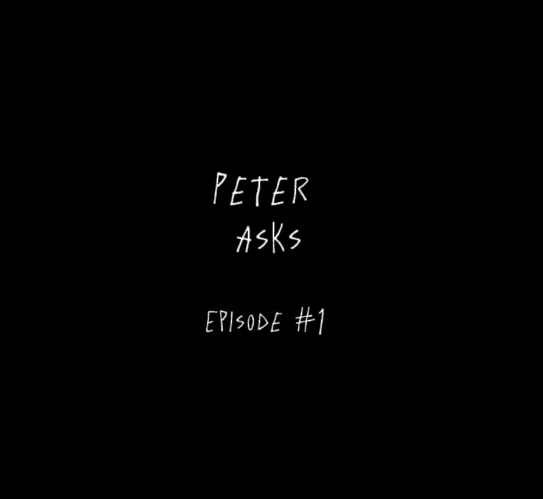Don’t Look Up: An Anti-Review
The premise of a new dramatic satire, known as Don’t Look Up, is simple: a giant comet is hurtling towards Earth, and if nothing is done to stop it, the impact will destroy our planet and every species living on it in just over 6 months. But, of course, this plot is not about astronomy at all; it’s an allegory for the climate crisis and the ineptitude of political leaders in mobilizing to mitigate it.
The satire follows Dr. Randall Mindy (Leonardo di Caprio), an astronomy professor, and his PhD student Kate Dibiasky (Jennifer Lawrence). When Kate discovers a new comet from the far reaches of space, Dr. Mindy discovers that its trajectory is headed straight towards Earth. The two scientists immediately get in touch with the head of NASA and President Orlean (Meryl Streep), but are surprisingly blown off. Orlean is concerned that “the science isn’t sound” or “there isn’t a 100% chance of impact”, despite Mindy and Dibiasky’s insistence that the math adds up and has been reviewed by a number of high-profile scientists. It seems that President Orlean is more concerned with how she’ll do at the midterm elections rather than an imminent threat to humanity. This, of course, is satirizing modern climate denial among many political leaders in the United States, including former president Donald Trump.
Following this disappointment, Randall and Kate then go on a media-run, desperately trying to leak the information of the comet to the press. However, everyone from TV show hosts to journalists at the New York Herald (a parody of the New York Times) continue to dismiss their findings in lieu of other, more feel-good stories. That is, until Peter Isherwell, an off-putting tech billionaire clearly parodying Elon Musk and other Silicon Valley titans, suggests that they attempt to mine the comet for minerals; in other words, to let it impact Earth in order to gain profit. The plot of the film makes it both ridiculous and frustrating to watch; but the similarities between mining a deadly comet for resources is eerily similar to the countless political leaders who are either apathetic towards climate change or actually believe that it could have positive effects on humans.
Don’t Look Up premiered on Netflix on December 24th, and was the most-watched English-language film on the platform the week of its release, garnering over 111 million hours of total watchtime by viewers. So, I think it’s safe to say that plenty of us are looking up, but what does that mean for the all-too-real threat of climate change?
What I find far more fascinating than the plot of the movie itself has been seeing the backlash it’s receiving: it’s been called “an A-list apocalyptic mess” by The Guardian, “a cosmic disaster” by the Wall Street Journal, “an environmental satire that squanders its resources” by NPR, and earned a measly 55% on Rotten Tomatoes. I even think these reviews make some accurate points: the movie certainly suffered from a far-too-long runtime, jokes that simply didn’t land, and an overall sense of aiming too high. But all of this bickering and usage of clickbait headlines reminds me a lot of countless scenes in the movie itself, where the scientists are fruitlessly arguing with the politicians about true, objective facts, and the politicians continue to spout nonsensical excuses, or inject their own opinions as if they themselves were the scientists. It doesn’t matter whether you loved or hated Don’t Look Up – and it doesn’t matter why you loved or hated it. The true, objective fact here is that the disastrous effects of climate change are hurtling towards us, and the time we spend debating the artistic merit of the movie is essentially time wasted.
All of this backlash makes me wonder: How would one even go about making the “perfect” climate change movie? How could one possibly not “aim too high” when climate change threatens the future of our entire planet? We could try to make a perfect climate change movie: a movie that is concise yet inspiring, emotionally resonant yet not heavy handed, a movie that reaches across the divide and appeals equally to the left and the right without disparaging the other side. But I suspect that the point of no return on climate change will come a lot sooner than the day humans figure out how to make flawless art about our own traumatic futures. I think, for now, we have to accept climate change art for what it is, accept it with all of its flaws and misgivings, so that we can put our energy towards actually preventing the destructive future that Don’t Look Up portrays.
I’m not here to prove a point on whether Don’t Look Up is a “good” or a “bad” movie; whether it fulfills its duties as a satire; or whether it will turn the tide on climate denial and make us all see the errors of our ways. Truthfully, I’m not interested in whether the movie holds up as “good” art made about climate change, and that’s precisely because it is art made about climate change. We could sit here all day and debate the meanings and intentions of Don’t Look Up, but then we would be missing its entire point; we would be missing the sense of urgency that the movie cultivates for over 2 hours. Because, as we sit here discussing our thoughts on a fictional story representing climate change, the metaphorical comet hurtles closer and closer.









Isabel Urban • Jan 26, 2022 at 4:35 PM
Anna- I love this anti-review and you perfectly summed up my thoughts on the movie. It was a very thought provoking film!